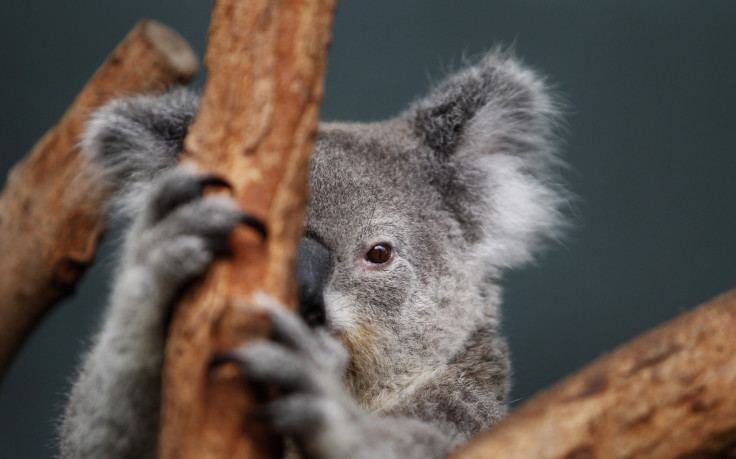Chlamydia In Koalas: Vaccine Trial To Battle The Disease In The Iconic Creatures Underway
KEY POINTS
- The Phase 3 trial of the chlamydia vaccine for koalas has begun
- Chlamydia is among the threats to the iconic creatures
- The vaccine can help with the conservation of the species
Chlamydia is said to be among the "most significant threats" to koala populations. To save the species, the creatures will take part in the trial of an all-important chlamydia vaccine.
Koalas are said to be facing the risk of extinction, with the devastating impact of the 2019-2020 bushfires killing thousands of koalas and destroying a huge chunk of their natural habitats. However, the species is also facing another threat: chlamydia.
Chlamydia is a bacteria that can be present in many mammal species across the world, Koala Hospital Port Macquarie noted. It has occurred in koalas for a "very long time," the organization explained, noting the possibility that the strains affecting them may have "jumped ship" from the agricultural animals brought by Europeans settling in Australia in the 1800s.
In koalas, chlamydia may present as an ocular or eye form of the disease where the creatures' eyes become red and inflamed and may lead to blindness and eventual starvation. It can also affect the urinary and reproductive tract (urogenital), while in others it presents as both an ocular and urogenital tract disease at the same time.
Today, 50% of the koala populations in South East Queensland and New South Wales are affected by chlamydia, University of the Sunshine Coast (USC) Professor Peter Timms said in a university news release. Dr. Amber Gillet, veterinarian and coordinator of research at Australia Zoo Wildlife Hospital, further noted in the release that chlamydia is actually the most common reason for koalas to be admitted to their facility.
Vaccine Trial
Last week, USC led the rollout of a chlamydia vaccine for koalas that have been in development for "many years," along with its many partners. Having passed Phases 1 and 2 of the testing, the Phase 3 trial began Friday.
"The vaccine has now passed Phase 1 and Phase 2 testing that has established that it is completely safe and produces a good immune response and a good level of protection," Timms said in the USC news release. "The vaccine has been evaluated in more than 200 koalas in eight smaller trials so far, both in captive and wild koalas entering wildlife hospitals and in koala populations in the wild."
🚨Announcement alert🚨! Our researchers are leading a rollout of a phase 3 trial to protect koalas against chlamydia – one of the biggest threats to their survival. Watch the video to learn more about this exciting project with @AustraliaZoo 🐨❤ pic.twitter.com/saP4ziQgVu
— UniSC: University of the Sunshine Coast (@usceduau) October 15, 2021
For the initial trial at the Australia Zoo Wildlife Hospital, hundreds of koalas that are admitted to the hospital will receive the single-dose vaccine after getting routine hospital care and before being brought back to the wild, USC noted. The vaccine will also be administered at other facilities, including the Moggill Koala Rehabilitation Centre and even in some wild populations soon.
According to Professor Timms, the koalas will be microchipped and the hospital will monitor them if they come back "for any reason" in the next 12 months.
"It is a cruel disease that causes debilitating conjunctivitis, bladder infections and at times, infertility," Dr. Gillet said, describing chlamydia as being among the "most significant threats" for koala populations.
"Although many koalas with chlamydia can be treated using traditional antibiotics, some animals cannot be saved due to the severity of their infection," Dr. Gillet added. "Having a vaccine that can help prevent both infection and the severity of the disease is a critical element in the species' conservation management."
Other threats to koalas include agricultural and urban development, getting hit by cars, elevated stress levels that make them more prone to illnesses, including chlamydia, and being attacked by dogs.

© Copyright IBTimes 2024. All rights reserved.






















